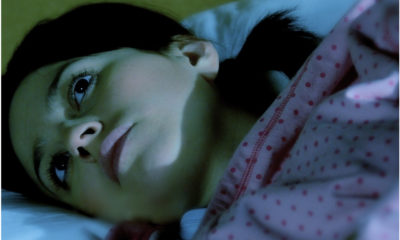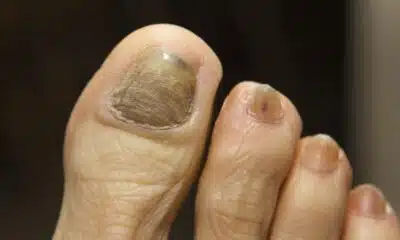HEALTH
Insomnia : Know the Causes, Symptoms & Treatment!
What is Insomnia?
Insomnia is difficulty in falling asleep and/or staying asleep; it is a sleep disorder which can affect any person due to various reasons.
Major Symptoms of Insomnia:
If You are Showing any of the Mentioned Symptoms, then there are 95% chances that You are suffering from Insomnia!
- Difficulty falling asleep
- Waking up throughout the night and finding it difficult to go back to sleep
- Waking up earlier than one should
- Not feeling well-rested
- Tiredness or sleepiness throughout the day
- Irritability and/ or anxiety
- Tiredness
- Inability to focus or concentrate on things
- Difficulty in recollecting things
- No motivation to complete the daily task
Types of insomnia
There are two types of insomnia which are primary and secondary.
- Primary insomnia – This indicates the person is having sleep issues which are not directly linked with any other health problems.
- Secondary insomnia – This indicates that the sleep issues are linked to some health problems which can be asthma, depression, cancer, arthritis etc., or the person is experiencing pain, taking certain medications or some other substance like alcohol.
The Difference between acute & chronic insomnia
Insomnia also depends on the duration it lasts and how often it reoccurs in a person. The short-term insomnia is termed as acute and the long-term insomnia is termed as chronic. Acute insomnia will last for days or for few weeks while chronic insomnia is when a person suffers from the lack of sleep at least for three nights in a week and when this continuous for a month or even longer.
Causes of insomnia
Causes of acute insomnia are:
- Stressful life which could be related to personal or professional life
- Illness
- Emotional or physical uneasiness
- Certain environmental factors like noise, light, extreme weather conditions that can affect the sleep
- Certain medications can also affect the sleep like medications which are taken for cold, allergy, depression, asthma etc.
- Change in the sleep schedule due to various factors like change in job shift from day to night, jet lag etc.
Causes of chronic insomnia are:
- Depression
- Anxiety
- Some pain or uneasiness in the night
- Chronic stress
Complications of insomnia
Sleep is very important for the health of a person just like their regular diet and any physical activity. Insomnia can have a huge impact on the physical and mental condition of the person. Some of the complications associated with insomnia are as follows:
- Poor performance at work, school or college
- Slow reaction while driving which increases the chances of accidents
- Health issues related to the mind like depression or anxiety
- Higher risk of long term illness with increased severity, this illness can be high blood pressure or heart problems
When to meet a doctor for medical assistance
If insomnia is making it very difficult for the patient to carry out his/her regular activities and is unable to focus on things it is advisable to meet a doctor. The doctor will have to find out the exact cause for insomnia and give the treatment accordingly. If the doctor post analyzing the symptoms feels that the patient is suffering from some sleep disorder then the patient will be referred to a sleep center for specific tests to be done.
Diagnosis of insomnia
The doctor will be able to diagnose if the patient is suffering from insomnia by conducting a physical examination and a check on the medical and sleep history. The doctor may suggest the patient to keep a sleep diary to track the sleep patterns for a few weeks and also monitor the condition during the day. The doctor will also ask certain questions to the patient to understand the quantity and quality of sleep.
Treatment for insomnia
There may be no treatment required for acute insomnia. If insomnia is making it difficult for the patient to carry out his/her regular activities during the day the doctor may prescribe sleeping pills but this will be limited to a few days. One must not use over the counter sleeping pills without taking advice from the doctor as these pills can have certain side effects and may not be effective over a period of time.
For chronic insomnia, the doctor will first start treating the health condition that is causing insomnia. And if insomnia continues then the doctor may advise behavioral therapy. This therapy will help the patient adopt to certain behaviors that will increase sleep and avoid those behaviors that will reduce sleep. Other techniques such as relaxation exercises sleep restriction therapy and reconditioning may be beneficial.






















